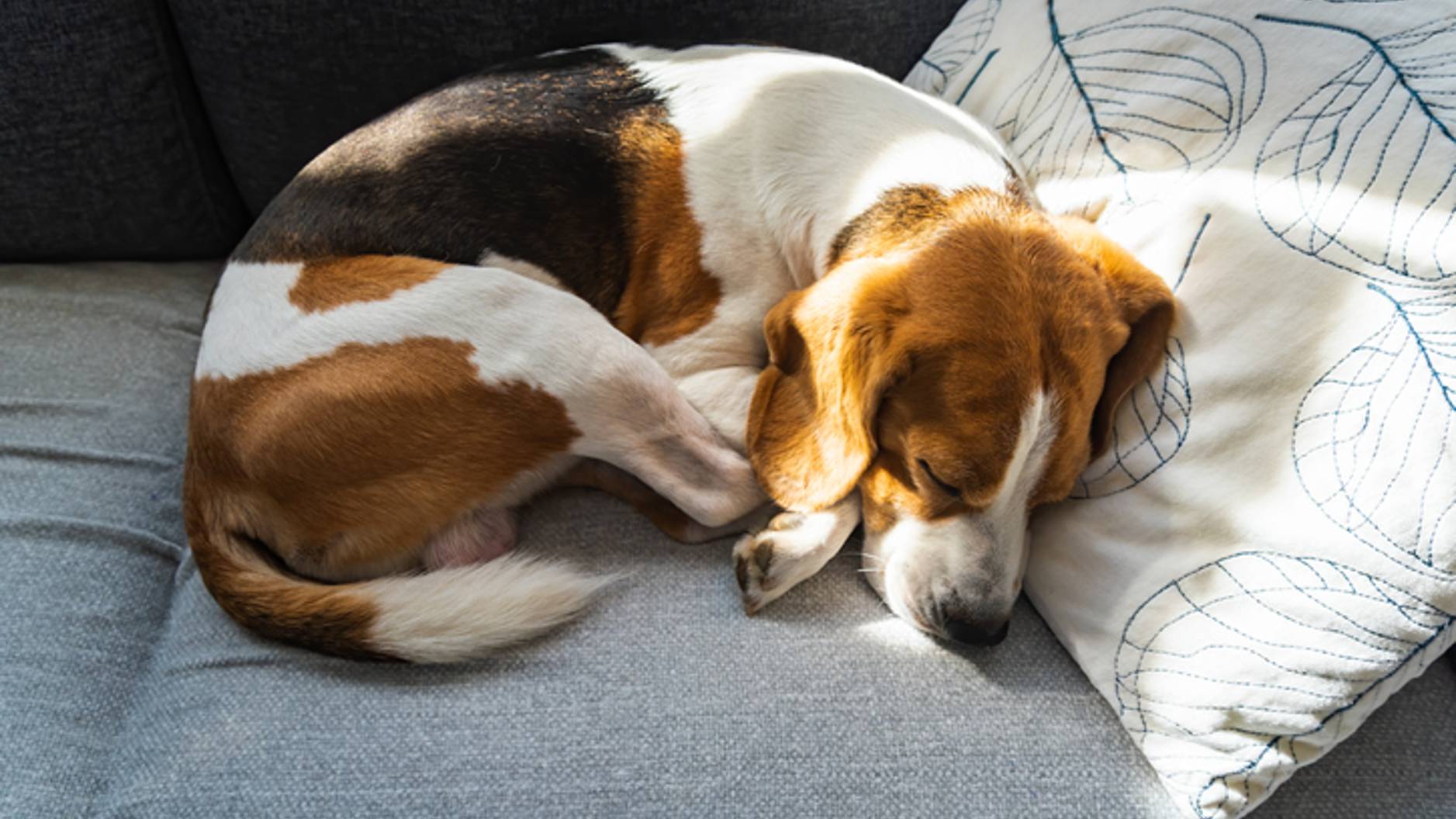Pepto Bismol for dogs
Is Pepto Bismol safe and can you give it to your dog?

Pepto Bismol is sometimes given to healthy dogs for the occasional upset stomach, but it’s important to check with your vet first to make sure it is appropriate to give your dog in this circumstance.
Too much Pepto Bismol can cause serious side effects for your dog, so you’ll need to first check with your vet to find out the right dosage for your dog’s current weight and health status.
It’s also important to know how Pepto Bismol works, so that if your dog has an upset stomach you are able to give it safely under your vet’s guidance.
What is Pepto Bismol?
Pepto Bismol is a commonly used drug in humans for a variety of digestive upsets, including nausea, heartburn, indigestion, upset stomach, and diarrhea.
Pepto Bismol – also known as bismuth salts, bismuth subcarbonate, bismuth subnitrate, or bismuth subsalicylate – is available over the counter for humans to address these ailments. Pepto Bismol works as an anti-inflammatory and antacid to settle the stomach, and may also have some antibacterial action, although this is not yet fully understood.
Most people are familiar with Pepto Bismol’s pink liquid suspension formulation, but it is also available in tablets, suppositories, and other formulations. In humans, it is recommended for occasional diarrhea, traveler’s diarrhea, or upset stomach due to overindulgence in food and drink.
Is Pepto Bismol safe for dogs?
Pepto Bismol is a safe and effective first line treatment with sudden onset diarrhea in dogs, as long as it is given under the guidance of your vet.
Get the best advice, tips and top tech for your beloved Pets
Although Pepto Bismol is safe for your dog when needed, be sure to store it out of reach so your dog does not get into it by accident.

Can I give my dog Pepto Bismol?
Your veterinarian may recommend giving your dog Pepto Bismol under certain conditions. However, you should never give your dog any over the counter medications, or any medications intended for humans, without first consulting your veterinarian. Always consult your veterinarian prior to giving any new medications or supplements to your dog.
If you have already given your dog Pepto Bismol, be sure to let your veterinarian know right away, as this may affect your veterinarian’s treatment options for your dog. Pepto Bismol is generally safe for dogs, but giving the wrong dosage or giving it at the wrong time can make your dog more sick, which is why it is important to always check with a professional first.
Side effects of Pepto Bismol in dogs
Although Pepto Bismol is safe for dogs when used at the appropriate dosage under the guidance of your vet, there can still be some side effects from using this medication. Side effects of Pepto Bismol in dogs can include:
- Black stools
- GI ulcers
- Constipation
If Pepto Bismol is overdosed, salicylate toxicity can result. This can cause potentially life-threatening symptoms such as:
- Gastric bleeding
- Metabolic acidosis
- Hyperthermia
- Tachypnea (rapid breathing)
- Dehydration
- Seizures
- Coma
- Pulmonary edema
Always check with your vet before giving Pepto Bismol to your dog to ensure you are giving a dosage that is safe and accurate for your dog’s current weight and health status. Only give multiple doses of the medication if your veterinarian advises you to do so.

Signs of an upset stomach in dogs
Your vet may prescribe Pepto Bismol for your dog if your dog has a sudden onset of diarrhea but is otherwise feeling well. If your dog has diarrhea but is still energetic, eating and drinking normally, and does not have any pain, then your veterinarian may recommend giving your dog Pepto Bismol to see if this will resolve the diarrhea.
In some cases, your vet may recommend giving your dog Pepto Bismol in addition to other prescription treatments. Be sure to follow their instructions closely and monitor your dog’s stool for changes. One important thing to note is that Pepto Bismol may turn your dog’s stool black. This is a normal change and nothing to worry about.
If your dog experiences other symptoms such as vomiting, lethargy, a painful abdomen, and loss of appetite, this can indicate a more serious problem and should be addressed by your vet right away. Be sure to tell your vet if you have given your dog Pepto Bismol or any other medications.
Causes of an upset stomach in dogs
Like humans, dogs can get an upset stomach for many different reasons. Sometimes dogs get upset stomachs due to something they ate that didn’t agree with them, or something they ate that they shouldn’t have – like that tasty wildlife poop out in the yard or the drippings from the neighbor’s grill.
Like us, dogs can also get an upset stomach from viruses or bacteria. And just like us humans, sometimes dogs get an upset stomach and we never know what caused it. In many cases, your veterinarian will treat the symptoms of an upset stomach without ever knowing for sure what actually caused the illness.
That’s okay though, because with treatment most dogs bounce back within 1-2 days and are their normal happy selves again!
Conclusion
Pepto Bismol is a safe and effective treatment for dogs, as long as it is given under the guidance of your veterinarian. Pepto Bismol for dogs can cause side effects, including black stools.
The black stools may look scary, but this is a normal and harmless side effect of the medication. If your dog is taking Pepto Bismol, be sure to monitor your dog’s stools closely and let your vet know if the diarrhea does not resolve within 24-48 hours.
You should also contact your veterinarian if any other symptoms develop, such as vomiting, lethargy, abdominal pain, or loss of appetite, as these can be signs of a more serious condition and should be addressed by your vet.
Dr. Elizabeth Racine is a small animal general practice vet covering all things pet health and wellness. Her special interests include veterinary behavior, nutrition, and internal medicine.
As a freelance writer, Dr. Racine has written content for major companies in the industry such as the American Kennel Club, Merck Animal Health, Bayer PetBasics, Elanco, and CareCredit. In her free time, Dr. Racine enjoys playing trampoline dodgeball, hiking with her beagle Dasher, and spending time with her three mischievous cats.

